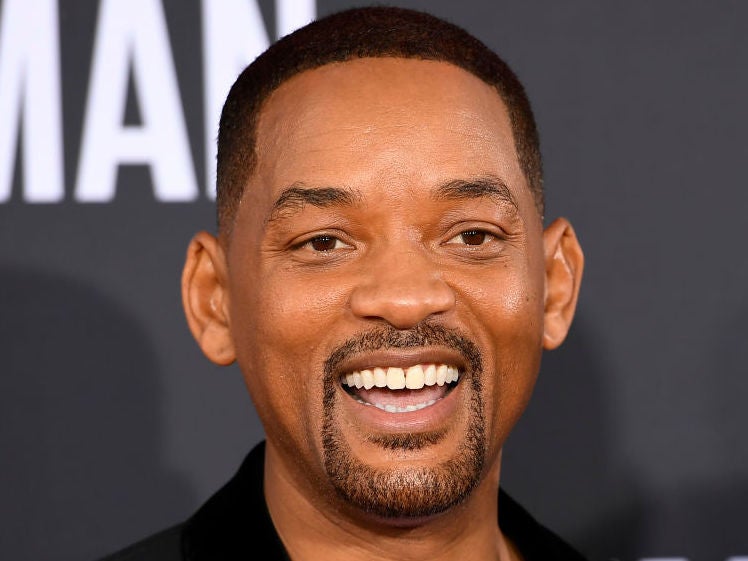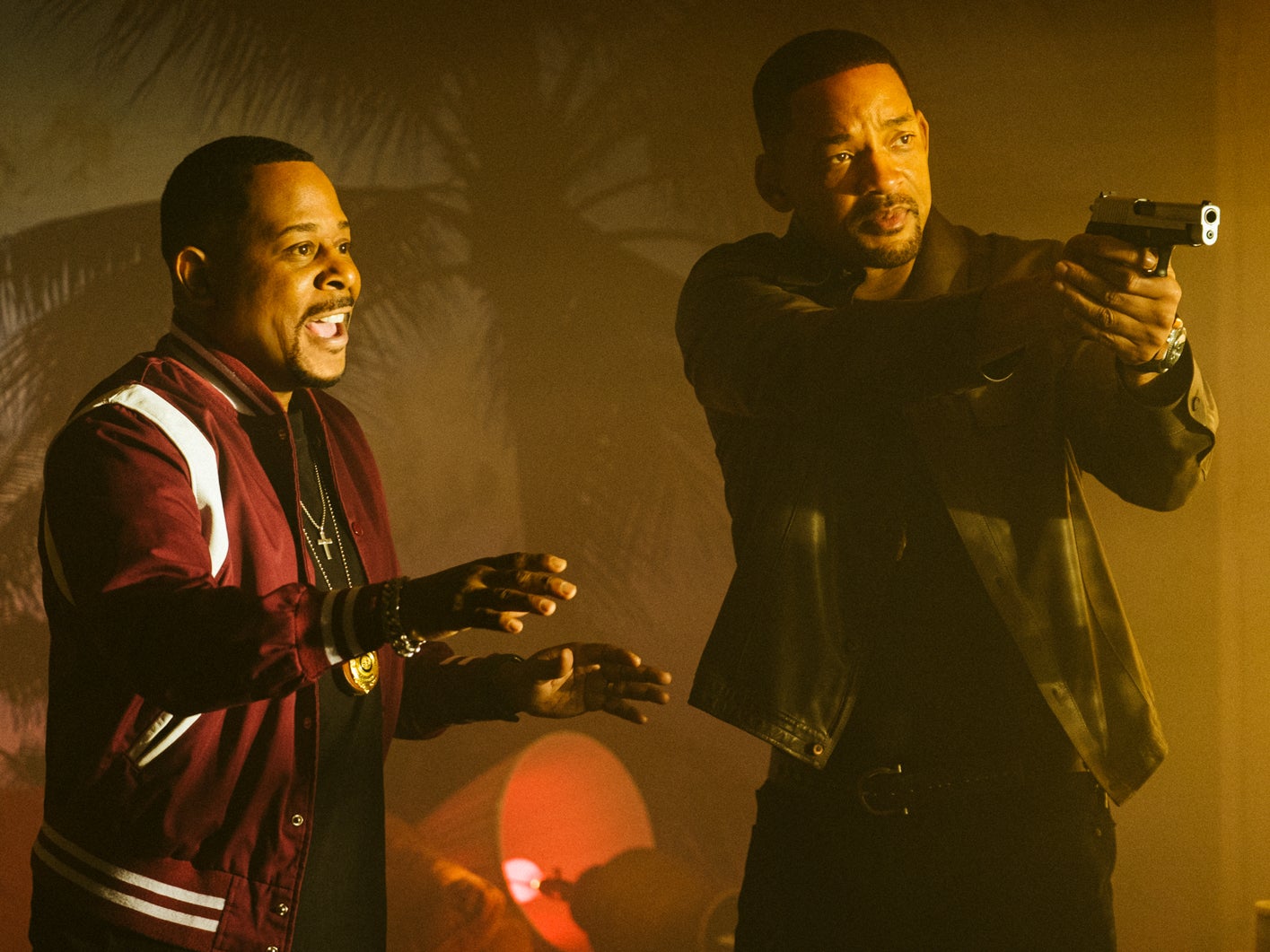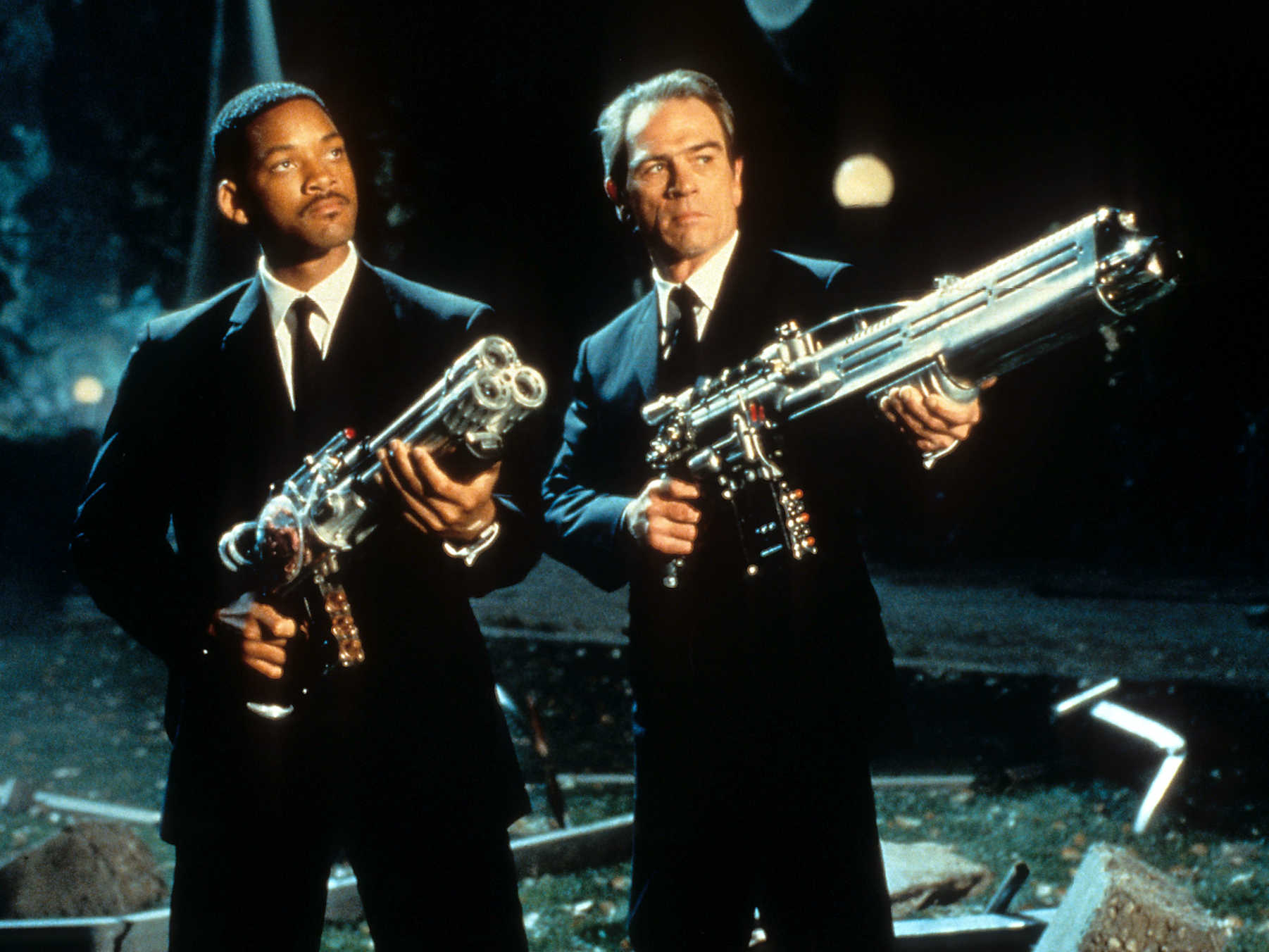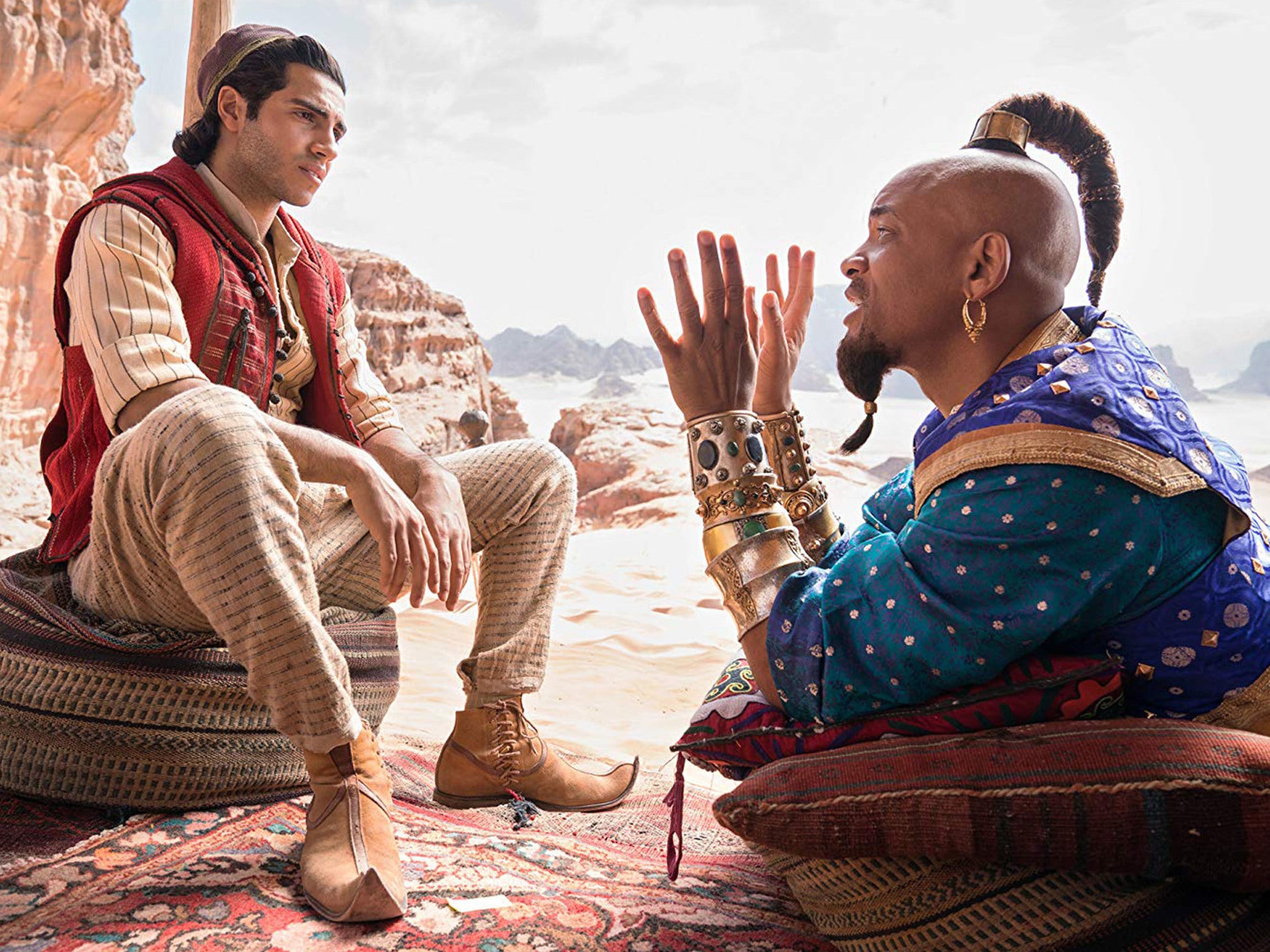The Independent's journalism is supported by our readers. When you purchase through links on our site, we may earn commission.
How Will Smith’s box office woes reflect a Hollywood in crisis
He was once such a box office sure-thing that he was nicknamed ‘The King of the Fourth of July’, but Will Smith’s big-screen fortunes have floundered in recent years. As he stars in yet another Bad Boys sequel, Adam White asks: has he instead become the king of weaponised nostalgia?


Your support helps us to tell the story
From reproductive rights to climate change to Big Tech, The Independent is on the ground when the story is developing. Whether it's investigating the financials of Elon Musk's pro-Trump PAC or producing our latest documentary, 'The A Word', which shines a light on the American women fighting for reproductive rights, we know how important it is to parse out the facts from the messaging.
At such a critical moment in US history, we need reporters on the ground. Your donation allows us to keep sending journalists to speak to both sides of the story.
The Independent is trusted by Americans across the entire political spectrum. And unlike many other quality news outlets, we choose not to lock Americans out of our reporting and analysis with paywalls. We believe quality journalism should be available to everyone, paid for by those who can afford it.
Your support makes all the difference.At the end of 2019, a number of long reads suggested that the past decade had broken our sense of time. We binge on hours of TV shows when we used to watch them weekly. Donald Trump talks of his 2016 victory like it happened a few months ago. Old songs by Lizzo reach number one years after they were first released. Nobody embodies this theory better than Will Smith.
Smith has an increasingly eager tendency to crawl back into the womb of his earliest blockbusters. Here he is in Men in Black again. Go on, have another Bad Boys sequel. Take a completely original idea called Gemini Man – but only if it stars a digitally rendered version of Smith circa 1995.
Smith is one of Hollywood’s last bona fide movie stars, an appealing and charismatic face anointed during a decade of enormous salaries, bountiful ticket sales and actors who could open movies on their names alone. One after another, he transformed original properties (or, in the case of Men in Black, comic books that few had heard of) into smash hits – singular proof that the industry was thriving, and that stars mattered. That Hollywood has spent the past decade attempting to recreate that moment, with Smith involved or not, is no surprise.
But it’s also made Smith the key figure of modern Hollywood’s fixation and dependence on nostalgia. In last summer’s Aladdin, a live-action remake of a 1992 film a generation of twenty-somethings adored as children, he was the three-dimensional version of the Genie once voiced by Robin Williams.
A fashion line inspired by The Fresh Prince of Bel-Air, Smith’s star-making TV series, was released last October – aimed at people too young to watch the show when it actually aired, but who adore Nineties aesthetics and the memes that have turned the show into a regular viral hit. In new sequel Bad Boys for Life, to be released this month, Smith and Martin Lawrence are the same characters they’ve played in increasingly lengthy increments since 1995. Everything old is new again, particularly when it involves Will Smith.
For more than a decade, Smith was untouchable, with an enviable radar for what audiences wanted to see. Independence Day (1996), Enemy of the State (1998), I, Robot (2004), Hitch (2005), I Am Legend (2007) and Hancock (2008) all assisted in the making of the Smith mythos. Even 1999’s Wild Wild West, widely regarded as his embarrassing early career misfire, grossed more than $200m.
Such a hot streak was unlikely to last forever, though, and it didn’t. Oscar plays like 2015’s Concussion were awarded with neither accolades nor box office success; After Earth (2013), his expensive collaboration with son Jaden and director M Night Shyamalan, was a box office disaster. The weepies that Smith always seemed to gravitate towards, like 2006’s The Pursuit of Happyness, suddenly appeared especially cloying and hackneyed. Collateral Beauty (2016), a surreal meditation on grief, angels and playing pretend, aimed for inspiring but settled on deranged. Last year, both Gemini Man and the animated movie Spies in Disguise were expensive failures. And there’s been an awkward sense of Smith inserting himself into risk-free ensemble projects that don’t particularly deserve him – 2016’s maligned DC Comics adaptation Suicide Squad remains an odd outlier on his long CV, while Aladdin, though a gigantic hit, was a creative wasteland.
Bad Boys for Life marks Smith once again retreating to safety after a big-screen cold streak. Like 2002’s Men in Black II and 2003’s Bad Boys II, which both followed the dismal The Legend of Bagger Vance (2000) and the underperforming albeit Oscar-nominated Ali (2001), it is Smith operating in reverse and leaping back into franchises we all liked years ago. It speaks to the limited options stars like Smith are faced with today, particularly when they don’t have tried-and-tested formulas to fall back on.

What makes Smith’s chequered box office history particularly striking is that he’s always been a star who has verbalised his passion for winning at all costs. Film roles, especially at the beginning of Smith’s career, were carefully selected things – guided by the marketplace, mathematics and the kind of spacey psychobabble Smith has always specialised in.

Watch Apple TV+ free for 7 days
New subscribers only. £8.99/mo. after free trial. Plan auto-renews until cancelled

Watch Apple TV+ free for 7 days
New subscribers only. £8.99/mo. after free trial. Plan auto-renews until cancelled
“They [needed] to go in this order,” he recalled of his old process to Backstage Magazine in 2015. “It needs to be a July movie, and then the next one’s at Christmas … I made the movie that needed to be out on the day that it needed to be out to be number one [at the box office]. I didn’t care how it felt. I didn’t care how difficult it was – I was going to find a way to win.”
The box office collapse of After Earth, he told Esquire in 2015, taught him to abandon his old philosophy. “What I learned from that failure is how you win,” he said. “I stopped working for a year and a half. I had to dive into why it was so important for me to have number-one movies … I never moved into a mature way of looking at the world and my artistry and love until the failure of After Earth, when I had to accept that it’s not a good source of creation.”
He continued, “After Earth comes out, I get the box-office numbers on Monday and I was devastated for about 24 minutes, and then my phone rang and I found out my father had cancer. That put it in perspective – viciously … That Monday started the new phase of my life, a new concept: only love is going to fill that hole. You can’t win enough, you can’t have enough money, you can’t succeed enough. There is not enough. The only thing that will ever satiate that existential thirst is love.”

Smith’s strategising had gone awry in the past, notably his decision to turn down The Matrix in favour of Wild Wild West, but his post-After Earth epiphany appeared to stick. For a while. He wisely turned down the belated Independence Day sequel, his character instead killed off between movies, and made 2015’s Focus, instead. A frothy con artist black comedy with Margot Robbie, it saw him embody an onscreen maturity that still felt endearingly mischievous. But it was the last gasp before things went awry again.
“Specifically at this time in my life, as I’m pushing more and struggling more for authenticity and openness and alignment, it was exciting to have a character who doesn’t care about any of that,” he told the Los Angeles Times upon the release of Focus. “Going the wrong way, studying the wrong way, helps clarify the right direction.”
Disappointingly, that right direction mainly seemed to involve enormous sums of money. It is arguable that Smith’s apparent decline is merely a product of our own outdated metrics when it comes to success – that we’re still naively indebted to box office numbers and the cultural conversation, as we were when Smith first came to fame.
Instead, Smith has transitioned elsewhere, and into areas that we don’t talk about with the same enthusiasm. He is huge on Instagram, collected an enormous paycheck from Netflix for a movie that vanished into the algorithm a week after it dropped, and has invested in a number of tech start-ups. In truth, Smith’s pockets are either the same or potentially even more filled with cash than they were during his cinematic prime.

Late last year, the Hollywood Reporter published an elaborate puff piece about Smith’s finances, which have flourished in the wake of a number of smart investments. He is speculated to have earned $27m from Netflix for the bizarre cops-and-orcs racism parable Bright, along with a sizeable chunk of the profits for Aladdin (in addition to his $12.5m upfront salary). As well as launching his own brand of boxed water with son Jaden, Smith is also co-owner of an investment company that has already begun moving into the short-form content arena. Jada Pinkett Smith’s wildly lucrative Facebook Watch talk show Red Table Talk has been one of its key successes so far.
But while Smith’s bank balance is safe, there is a feeling of stagnancy to Will Smith as a movie star and cultural figure. Coupled with the verbal diarrhoea, which turns every one of his interviews into an assault of pseudo-philosophical ambiguities and self-help speak, a man whose fame was founded on his easy approachability has become oddly inscrutable. His recent movies tend to be similarly baffling. Perhaps that’s why he so often seems to take shelter in the past.
Like the pre-Trump years, or a time when likes and shares didn’t dictate so many of our feelings, the Smith of the late 1990s and early 2000s is its own sort of blissful cocoon, where the gravity of our current woes can be put aside for short bursts of pleasure. Box office analysts are predicting Bad Boys for Life will be one of Smith’s biggest hits in recent years, if we’re excluding ensemble projects. It’s a movie nobody particularly wants, but it’s one that we might be desperate for all the same.
Join our commenting forum
Join thought-provoking conversations, follow other Independent readers and see their replies
Comments